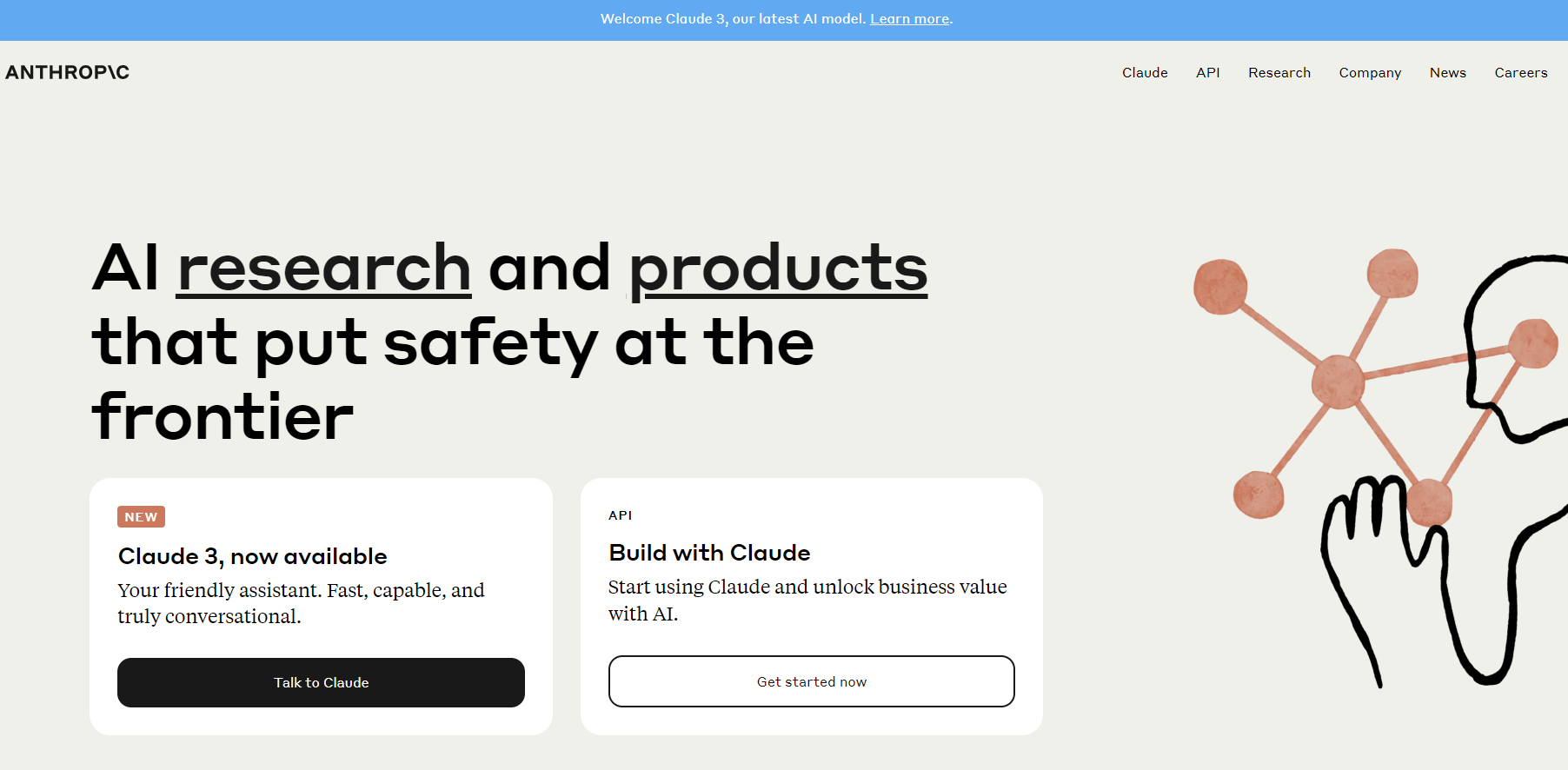In a significant advancement in the field of artificial intelligence, Anthropic has unveiled Claude 3, its latest AI model, establishing a new benchmark that rivals the capabilities of OpenAI's ChatGPT-4. This release marks a milestone in the AI industry, positioning Claude 3 as the first chatbot to match the prowess of ChatGPT-4, leaving Gemini Ultra trailing behind both in terms of performance.
Introducing Claude 3: A Trio of Excellence
Claude 3 emerges with three distinct versions, each designed to surpass the achievements of its predecessor, Claude 2, in both speed and responsiveness. The lineup includes:
- Haiku: Known for its unparalleled speed, Haiku is the quickest among the trio, designed for users who prioritize efficiency.
- Sonnet: This version powers the free offering of Claude 3, setting a new standard for no-cost AI chatbots in the market. Its capabilities are unmatched, making it the premier choice for users seeking quality without investment.
- Opus: At the helm of Claude 3's offerings, Opus powers the Claude Pro version, available for a subscription of $20/month. This model is tailored for professional use, providing advanced features for those requiring the utmost in AI assistance.
Transformative Writing and Content Creation
Our hands-on experience with Claude 3 has revealed its exceptional aptitude for formal and creative writing tasks. Whether it's composing emails, drafting memos, or generating summaries, Claude 3's output is both concise and nuanced, closely mirroring human-like qualities. Furthermore, when challenged with a variety of content creation prompts, Claude 3 demonstrated an impressive ability to deliver highly creative responses, showcasing its potential as a pivotal tool for writers and content creators.
Specialized Applications: A Mixed Bag
While Claude 3 shines in writing and creativity, it presents a mixed performance in other domains:
- For data analysis, ChatGPT-4 retains its superiority, especially in handling numerical data and designing charts or graphs. Despite Claude 3's expanded context limit—200K characters, extending up to 1M for select customers—it occasionally falters in precise numerical tasks.
- In coding applications, Claude 3 shows promising potential, with some users reporting it outperforms GPT-4 and specialized models like Grimoire. However, thorough comparisons are yet to be conducted to solidify these claims.
Insights and Considerations
As users navigate the offerings of Claude 3, several insights have emerged:
- While Claude 3 operates at a standard speed, it may experience slowdowns during extended interactions.
- In terms of cost-effectiveness, while Claude Opus carries a higher price tag compared to GPT, the Sonnet and Haiku versions offer more affordable alternatives.
- Users should be mindful of Claude 3's knowledge cutoff in August 2023, as it lacks real-time internet connectivity for updates beyond this point.
- Comparative analysis of these models is facilitated by platforms such as Poe, offering users the opportunity to assess which tool best meets their requirements.
Looking Forward: An AI Landscape in Flux
The introduction of Claude 3 invites users to reconsider their choice of AI tools, advocating for a comparative approach rather than outright replacement of existing options like ChatGPT. With speculation about OpenAI potentially releasing an update to ChatGPT, the timing of Claude 3's release could not be more opportune. It underscores the notion that the AI market is heading towards commoditization, suggesting a future where no single model dominates but rather a variety of options cater to diverse needs and preferences.
In conclusion, Claude 3 represents a significant leap forward in the AI sector, offering versatile capabilities that challenge the status quo. As the landscape continues to transform, the emphasis shifts towards a more nuanced selection of tools, tailored to specific tasks and user preferences. The arrival of Claude 3 not only broadens the horizon for AI applications but also encourages ongoing innovation and competition among leading AI developers.

